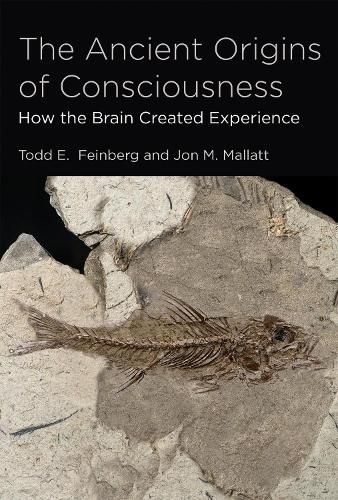Readings Newsletter
Become a Readings Member to make your shopping experience even easier.
Sign in or sign up for free!
You’re not far away from qualifying for FREE standard shipping within Australia
You’ve qualified for FREE standard shipping within Australia
The cart is loading…






How consciousness appeared much earlier in evolutionary history than is commonly assumed, and why all vertebrates and perhaps even some invertebrates are conscious.
How is consciousness created? When did it first appear on Earth, and how did it evolve? What constitutes consciousness, and which animals can be said to be sentient? In this book, Todd Feinberg and Jon Mallatt draw on recent scientific findings to answer these questions-and to tackle the most fundamental question about the nature of consciousness: how does the material brain create subjective experience?
After assembling a list of the biological and neurobiological features that seem responsible for consciousness, and considering the fossil record of evolution, Feinberg and Mallatt argue that consciousness appeared much earlier in evolutionary history than is commonly assumed. About 520 to 560 million years ago, they explain, the great Cambrian explosion of animal diversity produced the first complex brains, which were accompanied by the first appearance of consciousness; simple reflexive behaviors evolved into a unified inner world of subjective experiences. From this they deduce that all vertebrates are and have always been conscious-not just humans and other mammals, but also every fish, reptile, amphibian, and bird. Considering invertebrates, they find that arthropods (including insects and probably crustaceans) and cephalopods (including the octopus) meet many of the criteria for consciousness. The obvious and conventional wisdom-shattering implication is that consciousness evolved simultaneously but independently in the first vertebrates and possibly arthropods more than half a billion years ago. Combining evolutionary, neurobiological, and philosophical approaches allows Feinberg and Mallatt to offer an original solution to the hard problem of consciousness.
$9.00 standard shipping within Australia
FREE standard shipping within Australia for orders over $100.00
Express & International shipping calculated at checkout
Stock availability can be subject to change without notice. We recommend calling the shop or contacting our online team to check availability of low stock items. Please see our Shopping Online page for more details.
How consciousness appeared much earlier in evolutionary history than is commonly assumed, and why all vertebrates and perhaps even some invertebrates are conscious.
How is consciousness created? When did it first appear on Earth, and how did it evolve? What constitutes consciousness, and which animals can be said to be sentient? In this book, Todd Feinberg and Jon Mallatt draw on recent scientific findings to answer these questions-and to tackle the most fundamental question about the nature of consciousness: how does the material brain create subjective experience?
After assembling a list of the biological and neurobiological features that seem responsible for consciousness, and considering the fossil record of evolution, Feinberg and Mallatt argue that consciousness appeared much earlier in evolutionary history than is commonly assumed. About 520 to 560 million years ago, they explain, the great Cambrian explosion of animal diversity produced the first complex brains, which were accompanied by the first appearance of consciousness; simple reflexive behaviors evolved into a unified inner world of subjective experiences. From this they deduce that all vertebrates are and have always been conscious-not just humans and other mammals, but also every fish, reptile, amphibian, and bird. Considering invertebrates, they find that arthropods (including insects and probably crustaceans) and cephalopods (including the octopus) meet many of the criteria for consciousness. The obvious and conventional wisdom-shattering implication is that consciousness evolved simultaneously but independently in the first vertebrates and possibly arthropods more than half a billion years ago. Combining evolutionary, neurobiological, and philosophical approaches allows Feinberg and Mallatt to offer an original solution to the hard problem of consciousness.